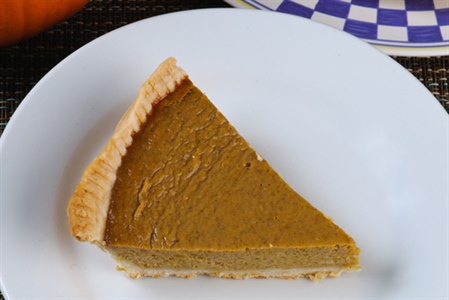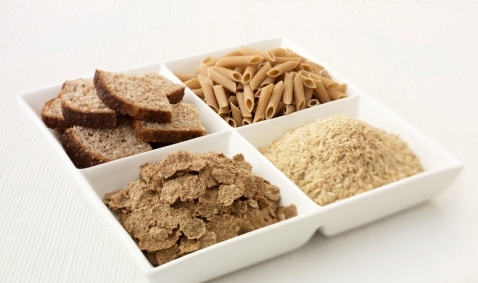Mediterranean Diet
What is the Mediterranean diet?
The Mediterranean diet is inspired by foods eaten in the countries that border the Mediterranean Sea, such as Greece, France, Spain and southern Italy.
In some ways, the Mediterranean diet is similar to other heart-healthy diets. It encourages you to eat foods such as fish, fruits and vegetables, beans and whole grains. Also, it does not include many meats, dairy products or sweets. However, in other ways, the Mediterranean diet is different from other heart-healthy diets. For example, it typically allows for more calories from fat (as long as you choose unsaturated and monounsaturated fats, such as olive oil). It also allows for moderate consumption of wine on a regular basis.
What are the health benefits of the Mediterranean diet?
Studies have shown that following the Mediterranean diet has many health benefits, especially when combined with exercise. It can help you lose weight and control your blood pressure, blood sugar and cholesterol levels. In older adults, it can help slow cognitive decline (when your brain doesn’t work as well as it used to). Following the Mediterranean diet also protects against some chronic diseases, including the following:
- Heart disease
- Cancer
- Type 2 diabetes
- Alzheimer’s disease
- Parkinson’s disease
Switching to a Mediterranean diet after you are diagnosed with heart disease or cancer can make you less likely to die from your disease.
How do I incorporate the Mediterranean diet into my healthy lifestyle?
There are some easy ways to incorporate the Mediterranean diet into your lifestyle. Try some of the tips below. If you have questions, talk to your family doctor.
- Make vegetables, fruits and whole grains the foundation of your meals. These foods should make up the majority of your meals. Choose a wide variety of fruits and vegetables, and prepare them simply. For example, roast your vegetables in the oven or sauté them in olive oil instead of butter. Switch to whole-grain breads, cereals and pastas. Try different whole grains, such as brown rice, quinoa and millet.
- Use unsaturated fats instead of saturated fats. Make good choices about which fats you eat. When cooking, choose unsaturated fats, such as olive oil and canola oil. Limit your intake of saturated fats, such as those found in butter and whole-milk dairy products, margarine, palm oil and coconut oil. Try to limit how much dairy you eat, and choose low-fat dairy products.
- Choose fresh, healthy snacks. For a snack, eat a small handful of walnuts, cashews, almonds or pistachios. Nuts are a good source of unsaturated fat. Spread some all-natural peanut butter or hummus on a slice of whole-grain bread. Cut up fresh vegetables and dip them in hummus or an olive-oil-based vinaigrette instead of sour cream or cheese dip.
- Get most of your protein from plant sources, poultry and fish. During the week, try eating mostly vegetarian meals that combine lentils, beans or chickpeas with whole grains and vegetables. Once or twice a week, bake or grill fish, such as tuna, salmon, trout, mackerel or herring. When you eat meat, choose poultry instead of red meat. Keep your portions at 3 oz. to 5 oz. (the size of a deck of cards). Avoid red meat, sausage, bacon and other high-fat meats.
- Raise a glass. The Mediterranean diet allows for a moderate amount of wine on a regular basis. Red wine may have more health benefits than white wine. Women (or men over age 65) can drink up to 1 glass of wine a day, and men under age 65 can have up to 2 glasses a day. Drinking more than this can increase your risk of health problems. If you are not able to limit how much you drink, or if you have a personal or family history of alcohol abuse, you should not drink alcohol at all.
- Limit sweets. Try to reduce your intake of regular soda, sweetened cereals or granola bars, and desserts to once or twice a week. Instead, if you need something sweet, try eating a piece of fresh, dried or baked fruit.
- Stay active. Remember, exercise helps boost the health benefits of the Mediterranean diet. Try to work up to at least 30 minutes of moderate exercise 5 days a week. Pick something that you enjoy. Walking, hiking, swimming or riding a bike are all good options.
This content was developed with general underwriting support from Nature Made®.
Bibliography
See a list of resources used in the development of this information.
-
10 Dining out tips for losing weight
Eating out is unavoidable but this should not impact your weigh
-
9 facts about the ketogenic diet
Page 1 of 9Prev Next >>Prev Next >>The ketogenic diet i
-
Scientific Study Finds Eating Coconut Oil Daily Leads to Reduction in Waist Size
Scientists now realize that weight reduction connected with coconu
-
Weight Loss Diet Plan That You Should Know
Over the last few decades, the medical world came to realize that obe
-
This is What Happens to Belly Fat and Blood Sugar When You Eat 2 TBSP of Coconut Oil
Nowadays, coconut oil belongs to the group of superfoods, but at t
-
Food Fight: Which Halloween Candy is Healthier?
Food Fight: Which Halloween Candy is Healthier?
- DON'T MISS
- Diet Plans to Lose Weight
- 10 Successful Secrets For Weight Loss
- Detox Drink Made of Just 2 Ingredients To Cleanse The Body of Toxins
- Ultimate Eat-Out Guide for Healthy Carbs
- A Detox Recipe to Cleanse Your Body and Burn Fat – Results After 7 Days
- Slimming World Diet Plan
- 4 Powerful Drinks That Can Help You Melt the Fat From the Stomach
- Whats Your Diet and Fitness IQ?
- Weight Loss Diet Pills Will Give You Quick Results For Shedding The Pounds
- How to Reset Your Body’s Hormone Levels to Lose Stubborn Pounds




